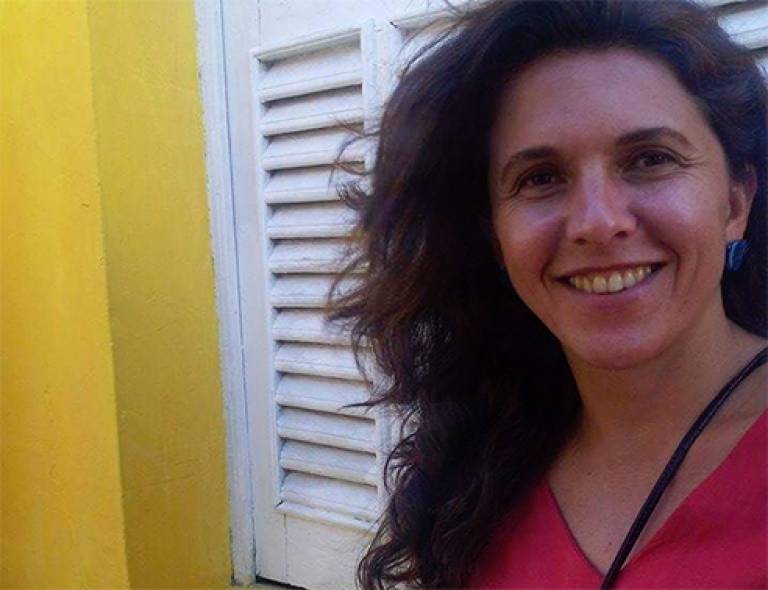Spotlight on Dr Ana Cláudia Suriani da Silva
25 January 2017
This week the spotlight is on Dr Ana Cláudia Suriani da Silva, Senior Lecturer in the UCL Department of Spanish, Portuguese & Latin American Studies.

What is your role and what does it involve?
I am a Senior Lecturer of Brazilian studies. I teach Portuguese language and Brazilian literature and culture. The Modern Languages BA in Portuguese (+ another language) is fairly new, so since I joined UCL I have been working on the design of our undergraduate content modules with a focus on Brazil. This year we are offering our final year courses for the first time.
Much of my time has been dedicated to the design of a Brazilian short fiction course, which combines research, publishing and literary studies. It has been a great challenge and at the same time rewarding as I can work with students on a subject that is very close to my research interests and which, I hope, can help them develop publishing and archival research skills.
In terms of research, I have a long-term collaboration with the University of Campinas and the University of São Paulo, Brazil, on projects dealing with the 19th century press and cultural transfers between Brazil and Europe. In the past few years I have worked on the 19th century fashion press and more recently on the Brazilian press in London. I hope soon to be able to start working on a more literary subject that does not require much travelling and funding!
How long have you been at UCL and what was your previous role?
I have been at UCL for nearly three years. Prior to UCL I worked as a tutor at the University of Surrey and the University of Birmingham.
What working achievement or initiative are you most proud of?
Last year I had the opportunity to get involved with the planning of Café Culture, a programme of evening events at which UCL School of European Languages, Culture & Society researchers and external speakers give short, fun talks on themes they have researched.
As a newcomer, this was the best way to get to know the research culture of our school. I also took the initiative to organise translation workshops with Brazilian authors for our undergraduate students, and I managed to get funding from the Brazilian National Library to run two workshops and a series of seminars by Ricardo Lísias.
This year the workshop will be run by Ana Maria Machado, an acclaimed Brazilian writer and member of the Academia Brasileira de Letras. She will also be giving a talk on the limitations and possibilities of translation at the British Library on 9 February - I really recommend it!
Tell us about a project you are working on now that is top of your to-do list.
I am concluding the special issue 'Machado de Assis and Fashion' of the peer-reviewed journal Machado de Assis em Linha. It is due this coming April. It will feature an interview with Beth Felipeck, the costume designer for the TV series Capitu, and a dossier containing images of various television and cinema adaptations of Machado de Assis's works. So top of my to-do-list now is to get permission to reproduce the images!
What is your favourite album, film and novel?
I tend to listen to the same album for a few days or even weeks. My favourite album at the moment is Cores, Nomes by Caetano Veloso (I even made my students listen to it in a language class about colours). My favourite film is Avatar. I have just finished reading the Neapolitan Novels by Elena Ferranti - it made me look forward to my commute. I will probably start reading it again, but now in Italian.
What is your favourite joke (pre-watershed)?
Can I skip this one? I am not very good at jokes...
Who would be your dream dinner guests?
Dilma Rousseff.
What advice would you give your younger self?
Take a gap year and travel.
What would it surprise people to know about you?
I am afraid of heights and I am currently trying to decide whether or not I should sign up for a triathlon this coming May.
What is your favourite place?
I have two favourite places: a waterfall called Buracão in Chapada Diamantina, Brazil, and Vila Nova de Milfontes, Alentejo, Portugal.
 Close
Close

